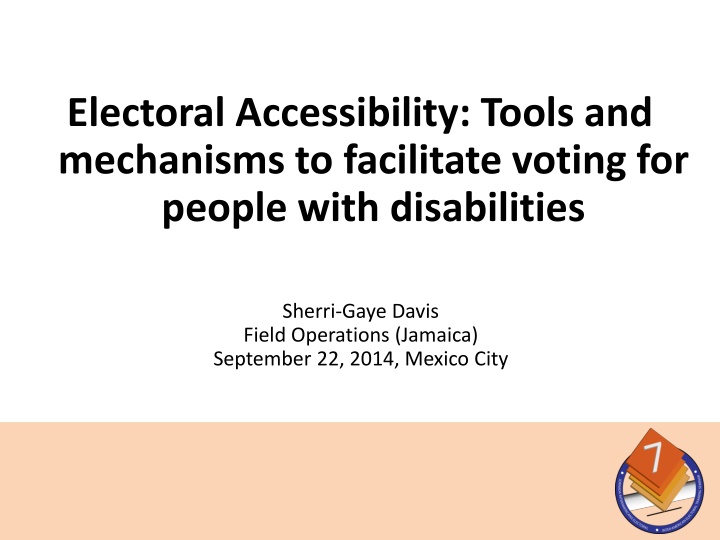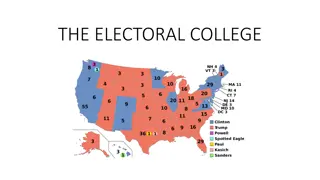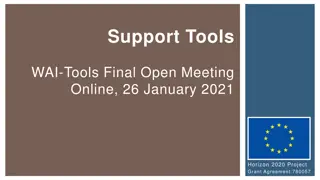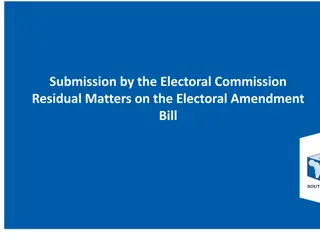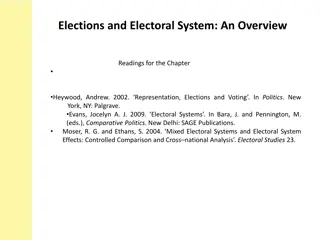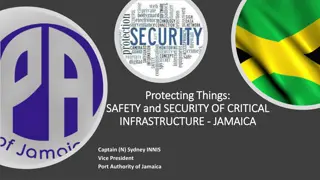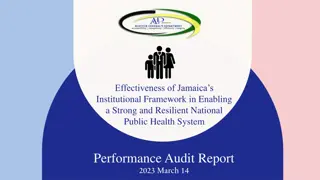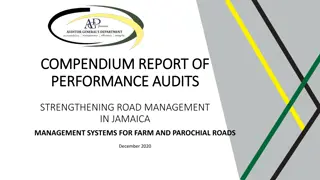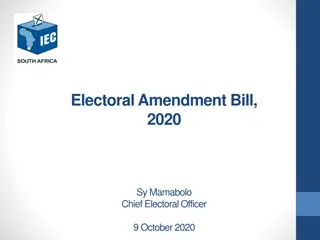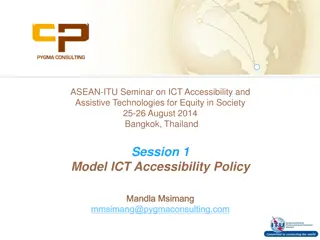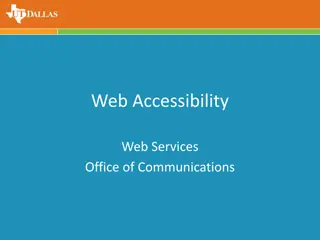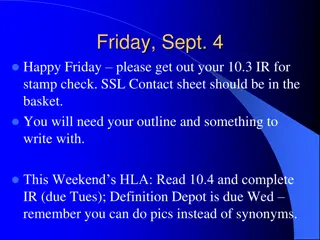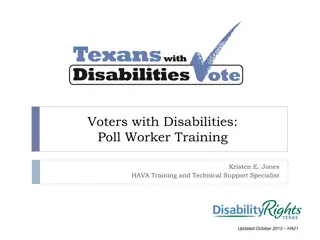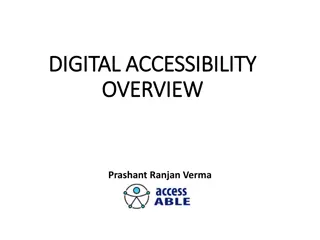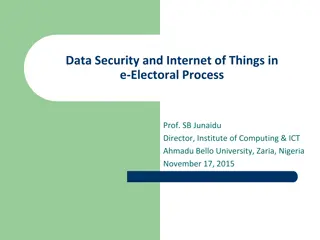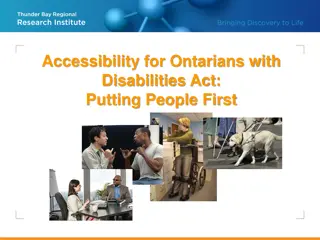Enhancing Electoral Accessibility for People with Disabilities in Jamaica
The Disabilities Act of 2014 in Jamaica ensures that individuals with disabilities have the right to participate in political activities, including voting and running for office. Strategies such as home registration and accessible polling stations are implemented to facilitate voting for disabled individuals. Despite challenges with infrastructure, efforts are being made to improve electoral accessibility in Jamaica.
Download Presentation

Please find below an Image/Link to download the presentation.
The content on the website is provided AS IS for your information and personal use only. It may not be sold, licensed, or shared on other websites without obtaining consent from the author.If you encounter any issues during the download, it is possible that the publisher has removed the file from their server.
You are allowed to download the files provided on this website for personal or commercial use, subject to the condition that they are used lawfully. All files are the property of their respective owners.
The content on the website is provided AS IS for your information and personal use only. It may not be sold, licensed, or shared on other websites without obtaining consent from the author.
E N D
Presentation Transcript
Electoral Accessibility: Tools and mechanisms to facilitate voting for people with disabilities Sherri-Gaye Davis Field Operations (Jamaica) September 22, 2014, Mexico City
Introduction Of 2.72 million Jamaicans, approximately 10% of the population is disabled. Population of Jamaicans with reported disabilities 10% Jamaican's without Disabilities Jamaican's with Disabilities 90% Source: Derrick Kellier Minister of Labour and Social Security The Disabilities Act was passed in July 2014.
The Disabilities Act (Act of 2014) A person with a disability shall not be denied the opportunity to participate in activities or work that relate to political office including: I. the opportunity to vote using procedures, facilities and materials that are appropriate, accessible, easy to use and understand.
Disabilities Act (Act of 2014) contd II. the opportunity to be elected to political office and perform public functions at all levels of government. III. involvement in the activities and administration of political parties.
The Electoral Process (Enumeration) Voting is preceded by enumeration. Buildings used as registration centres are mainly privately owned and are usually without proper infrastructure (to facilitate the disabled). Disabled electors are assisted by conducting registration at the applicant s home or at ground floors of registration centres, where applicable.
The Electoral Process (Enumeration) cont d Home delivery of Identification cards is facilitated for electors who are physically incapacitated and/or bedridden (at the request of the elector). Ground floor shops/locations are selected for constituency offices and polling stations, where possible.
The Electoral Process (Voting) The Electoral Commission of Jamaica (ECJ) does not own the buildings used for voting. Publicly owned buildings are used, which, in some cases, lack proper infrastructure to accommodate disabled individuals. Tents are sometimes used as polling stations where multi-floored buildings and/or insufficient space is available to house a polling station.
Assisted Voting There exists two (2) types/methods of voting Manual Electronic (EBVIS) Assistance is provided for individuals with varying types of disabilities when casting their votes: Visually impaired Physically incapacitated
Special Considerations The Electoral Office of Jamaica (EOJ) has modified its Head Office to ensure accessibility. The building code in Jamaica is being amended for schools and other public buildings to be constructed to accommodate the disabled. Elderly persons, heavily pregnant women and the disabled are allowed to go to the front of the line to vote.
